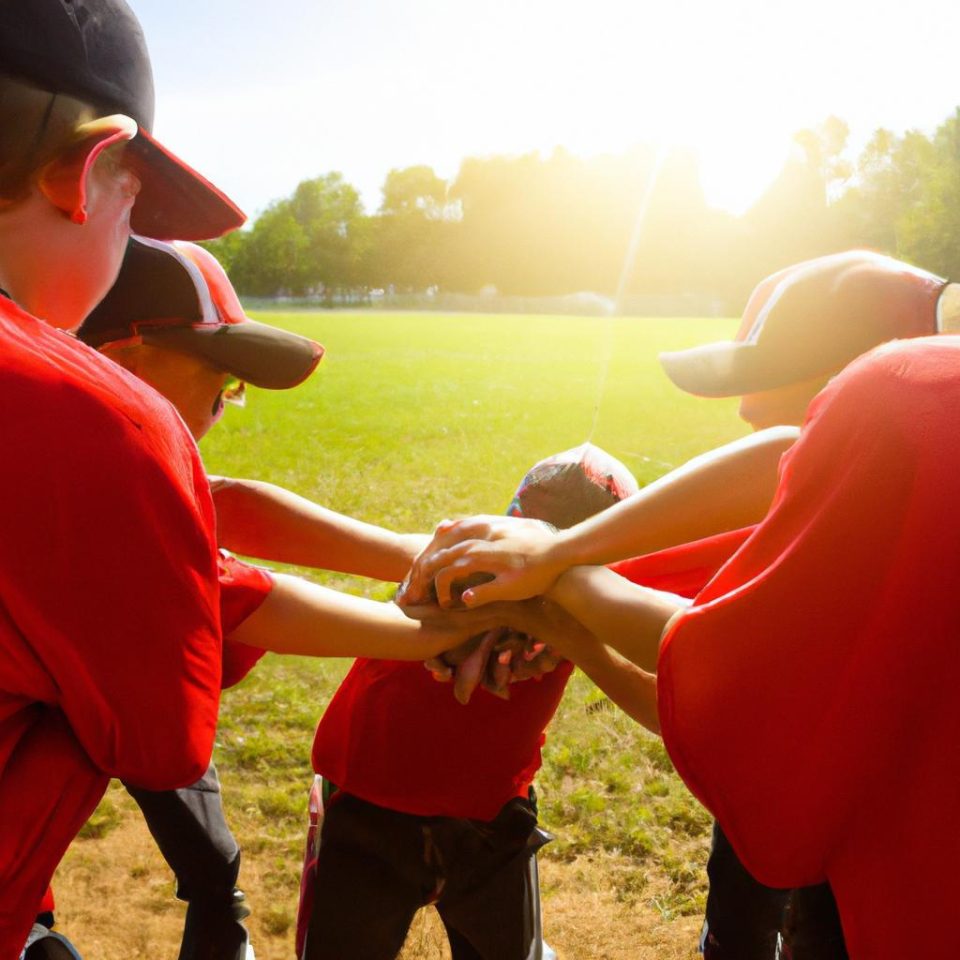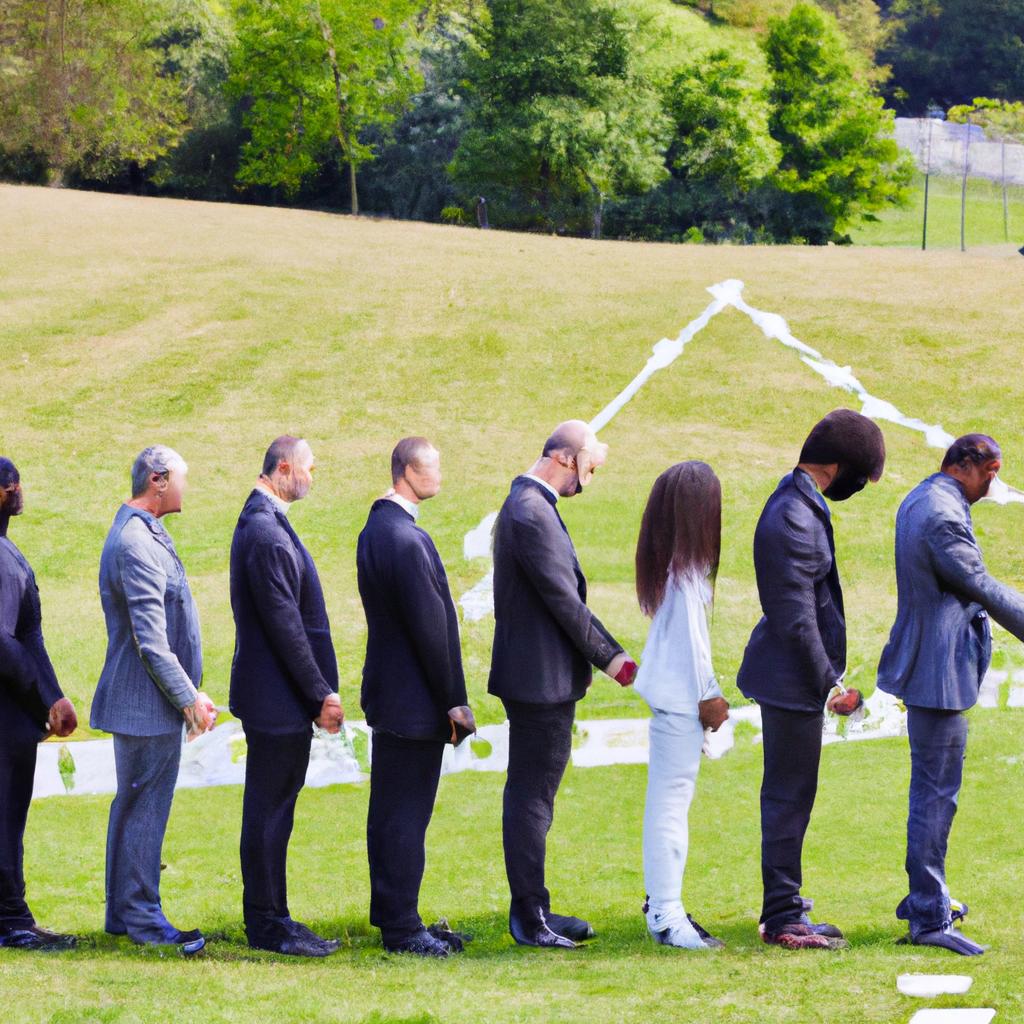United on the Field: How Team Sports Foster Camaraderie and Essential Teamwork Skills

In the heart of a bustling stadium or the quiet expanse of a local park, the essence of teamwork unfolds with every pass, pivot, and play. Team sports are more than just a physical endeavor; they are a microcosm of life itself, where collaboration and camaraderie intertwine to create lasting bonds. As players learn to navigate the complexities of working together towards a common goal, they also cultivate essential skills that extend far beyond the field. In this exploration of “United on the Field,” we delve into the myriad ways team sports foster connection and nurture the teamwork skills crucial for success both in athletic settings and in everyday life. Through the lens of shared experiences, we uncover how these vibrant interactions forge friendships, foster resilience, and prepare individuals to tackle the challenges that await them off the field. Join us as we celebrate the spirit of unity that defines team sports and discover the profound impact they have on personal and collective growth.
Building Bonds Through Shared Goals
In the vibrant arena of team sports, the essence of collaboration is nurtured through the pursuit of common objectives. When players unite to chase a shared victory, they naturally develop a bond that transcends the field. This camaraderie is often forged in the heat of competition, where players must rely on one another, strategize together, and execute plays as a cohesive unit. The experience of working towards a single goal encourages communication and trust, which are foundational elements of any strong relationship. **Trust** here is not just a word; it evolves into an unspoken understanding that each player has the other’s back, fostering a profound sense of loyalty and friendship.
Key elements of include:
- Mutual Support: Players lift each other up during challenging moments, reinforcing emotional ties.
- Collective Achievement: Celebrating victories (and lessons from losses) together strengthens group identity.
- Shared Responsibility: Understanding that individual performance impacts the entire team encourages accountability.
When teams set specific goals, the journey becomes not just about winning but also about personal growth. This dynamic is illustrated in our simple table below, highlighting how various sports cultivate character and collaboration:
| Sport | Goal Setting Benefits |
|---|---|
| Football | Team strategy and execution |
| Basketball | Quick decision-making and adaptability |
| Volleyball | Communication and trust during plays |
| Rugby | Strong teamwork and resilience under pressure |

The Role of Communication in Effective Team Dynamics
Effective teamwork relies heavily on the quality of communication within a group. In the fast-paced environment of team sports, athletes must become adept at not only articulating their thoughts but also actively listening to one another. This two-way communication fosters an atmosphere of trust and respect, where each member feels valued. Coaches often encourage players to engage in open discussions regarding strategies, enabling them to understand diverse perspectives. Key facets of communication in sports include:
- Clarity: Clear instructions from coaches ensure that every player knows their role, reducing confusion on the field.
- Feedback: Constructive criticism and praise help players refine their skills and grow collectively.
- Non-verbal cues: Body language and gestures can communicate intentions and emotions effectively.
- Trust building: Open dialogue nurtures a safe environment for honest conversations, strengthening team bonds.
Moreover, well-developed communication skills help athletes navigate high-pressure situations. During critical moments in a game, the ability to quickly and calmly relay information can be the difference between victory and defeat. Teams with strong communicative practices tend to exhibit superior coordination, leading to more fluid gameplay. The importance of effective communication is also illustrated in the following table:
| Communication Aspect | Impact on Team Dynamics |
|---|---|
| Active Listening | Promotes understanding and empathy among teammates. |
| Open Dialogue | Encourages creativity and innovation in strategy. |
| Team Meetings | Facilitates planning and builds a sense of unity. |

Cultivating Leadership and Resilience in Team Environments
In the dynamic arena of team sports, the development of leadership and resilience is as fundamental as athletic performance. Each game provides an opportunity for individuals to step into leadership roles, whether as captains, motivators, or strategists. These roles require **effective communication**, **decision-making under pressure**, and the ability to inspire teammates. As players navigate victories and setbacks together, they learn to rally their peers, share the weight of challenges, and celebrate collective success. This environment fosters not just individual growth, but also the cultivation of shared values and goals that bind the team together.
Resilience is another vital characteristic that team sports nurture. Athletes face inevitable obstacles, from injuries to losses, and how they respond to these challenges can define their character. Embracing a mindset of perseverance, players learn to adapt and recover. Key elements that enhance resilience within team settings include:
- Supportive Environment: Where encouragement flows freely and helps lift spirits.
- Shared Experience: Building strong bonds through triumphs and failures, creating a foundation of trust.
- Growth Mindset: Encouraging a focus on learning from mistakes rather than getting discouraged.
Together, these factors create a culture of resilience that empowers individuals not only to excel on the field but also to transfer these skills into their everyday lives.
To Wrap It Up
As we draw the curtain on our exploration of “United on the Field: How Team Sports Foster Camaraderie and Essential Teamwork Skills,” it becomes evident that the lessons learned from sport extend far beyond the confines of the playing field. Each pass, strategy discussion, and moment of shared triumph contributes to a deep sense of belonging and mutual respect among team members. These experiences not only forge lasting friendships but also equip individuals with invaluable skills that translate into every aspect of life, from professional endeavors to personal relationships.
In a world often marked by division, team sports remind us of the strength found in unity. They invite us to celebrate diversity, cultivate empathy, and embrace the power of collaboration. As we lace up our shoes and step onto the field, we step into a realm where challenges become opportunities, and every setback is merely a stepping stone toward greater resilience.
So, whether you’re a seasoned athlete or someone exploring new terrains in the world of sports, remember: each game is not just about the score—it’s a canvas for building connections, nurturing growth, and honing the art of teamwork. Together, united on the field, we learn not only to play the game but also to live it—shoulder to shoulder, in harmony, and with a shared purpose.





